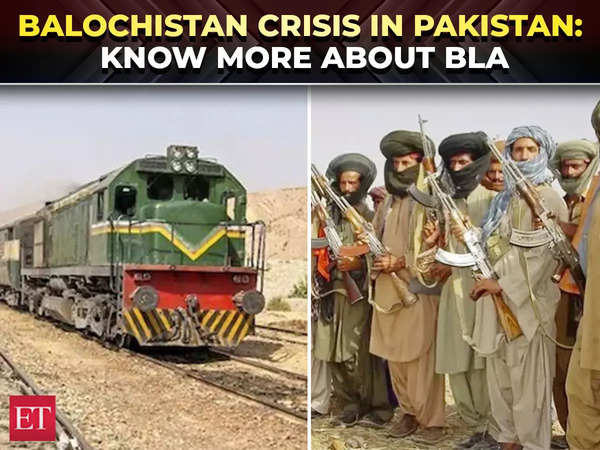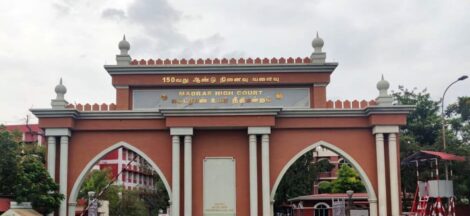India has firmly dismissed Pakistan’s allegations of sponsoring terrorism in the aftermath of the Balochistan train hijacking, asserting that Islamabad should address its internal issues rather than attributing blame externally. The incident, which occurred on March 11, involved the seizure of the Jaffar Express by militants, resulting in a protracted hostage situation and significant casualties.
The Balochistan Liberation Army , a separatist militant organization, claimed responsibility for the hijacking of the Jaffar Express, which was carrying over 450 passengers. The assault led to a deadly confrontation that left 58 individuals dead, including 21 passengers, four soldiers, and all 33 militants involved. The incident marked a significant escalation in the BLA’s tactics, highlighting the ongoing insurgency in Balochistan, a region plagued by poverty and political marginalization.
In the wake of the attack, Pakistan’s Foreign Office spokesperson, Shafqat Ali Khan, suggested that the perpetrators had connections to handlers based in Afghanistan, allegedly sponsored by India. Khan stated that evidence pointed to calls related to the hijacking originating in Afghanistan. When questioned about a potential shift in Pakistan’s stance from implicating India to Afghanistan, Khan maintained that there was no change in policy, reiterating accusations of India’s involvement in sponsoring terrorism against Pakistan.
Responding to these allegations, India’s Ministry of External Affairs spokesperson, Randhir Jaiswal, categorically rejected the claims, stating, “We strongly reject the baseless allegations made by Pakistan. The whole world knows where the epicentre of global terrorism lies.” Jaiswal further advised Pakistan to introspect, saying, “Pakistan should look inwards instead of pointing fingers and shifting the blame for its own internal problems and failures onto others.”
Afghanistan’s Ministry of Foreign Affairs also refuted Pakistan’s assertions, urging Islamabad to focus on resolving its internal security issues rather than making unfounded accusations. The Afghan ministry emphasized that such claims were baseless and called for Pakistan to address its own challenges.
The Balochistan region has long been a hotspot for insurgent activities, with groups like the BLA advocating for greater autonomy or independence. The Pakistani government has consistently accused neighboring countries, particularly India, of supporting these separatist movements, allegations that India has steadfastly denied. The recent train hijacking underscores the persistent security challenges in the region and the complexities of attributing responsibility in such volatile contexts.
The international community continues to monitor the situation closely, recognizing the delicate balance required to address internal security concerns without escalating regional tensions. The incident serves as a stark reminder of the intricate dynamics at play in South Asia, where historical grievances, geopolitical rivalries, and internal strife intersect, often leading to a blame game that hampers constructive dialogue and resolution.
As investigations into the Balochistan train hijacking proceed, the focus remains on ensuring accountability for the perpetrators while fostering an environment conducive to peace and stability in the region. Both India and Pakistan face the imperative of addressing their internal challenges and engaging in meaningful dialogue to prevent such incidents from derailing the prospects of regional cooperation and harmony.
The Balochistan train hijacking has once again brought to the forefront the issue of militancy in Pakistan’s southwestern province. The BLA’s audacious attack on the Jaffar Express not only resulted in tragic loss of life but also exposed significant security lapses. The group’s ability to orchestrate such a high-profile assault raises critical questions about the effectiveness of Pakistan’s counterinsurgency strategies and the underlying socio-economic grievances that fuel such insurgencies.
Pakistan’s swift attribution of blame to external actors, particularly India, without presenting concrete evidence, has been a recurring theme in its narrative. This approach often serves to divert attention from internal policy shortcomings and the need for comprehensive reforms to address the root causes of unrest in regions like Balochistan. By externalizing the threat, the Pakistani establishment risks overlooking the pressing need for political dialogue, economic development, and social integration to mitigate separatist sentiments.
India’s unequivocal rejection of Pakistan’s allegations reflects its longstanding position against being implicated in Pakistan’s internal conflicts. New Delhi’s emphasis on Pakistan’s own role in fostering terrorism underscores the broader international consensus regarding the origins of various militant groups operating in the region. This stance is bolstered by historical evidence linking Pakistan to the support and harboring of terrorist organizations, a factor that has significantly strained its relations with neighboring countries and the global community.
The involvement of Afghanistan in this discourse adds another layer of complexity. Afghanistan’s outright denial of facilitating any anti-Pakistan activities and its call for Islamabad to address its internal issues highlight the intricate web of regional politics. The porous nature of the Afghanistan-Pakistan border has historically allowed various militant groups to operate with a degree of impunity, complicating counterterrorism efforts and fostering mutual distrust between the two nations.
The international community’s response to these developments has been one of cautious observation. There is a growing recognition that attributing blame without substantive evidence can exacerbate tensions and hinder collaborative efforts to combat terrorism. Global stakeholders advocate for transparent investigations, confidence-building measures, and regional cooperation to effectively address the menace of militancy.
The Balochistan train hijacking serves as a poignant reminder of the enduring challenges that South Asia faces in its quest for peace and stability. It underscores the imperative for nations to move beyond accusatory rhetoric and engage in introspection, policy reform, and constructive dialogue. Addressing the socio-economic disparities, ensuring political representation, and upholding human rights are crucial steps toward mitigating the allure of insurgency.




 Opposition Questions Government’s Stance Amid Starlink Controversy
Opposition Questions Government’s Stance Amid Starlink Controversy 